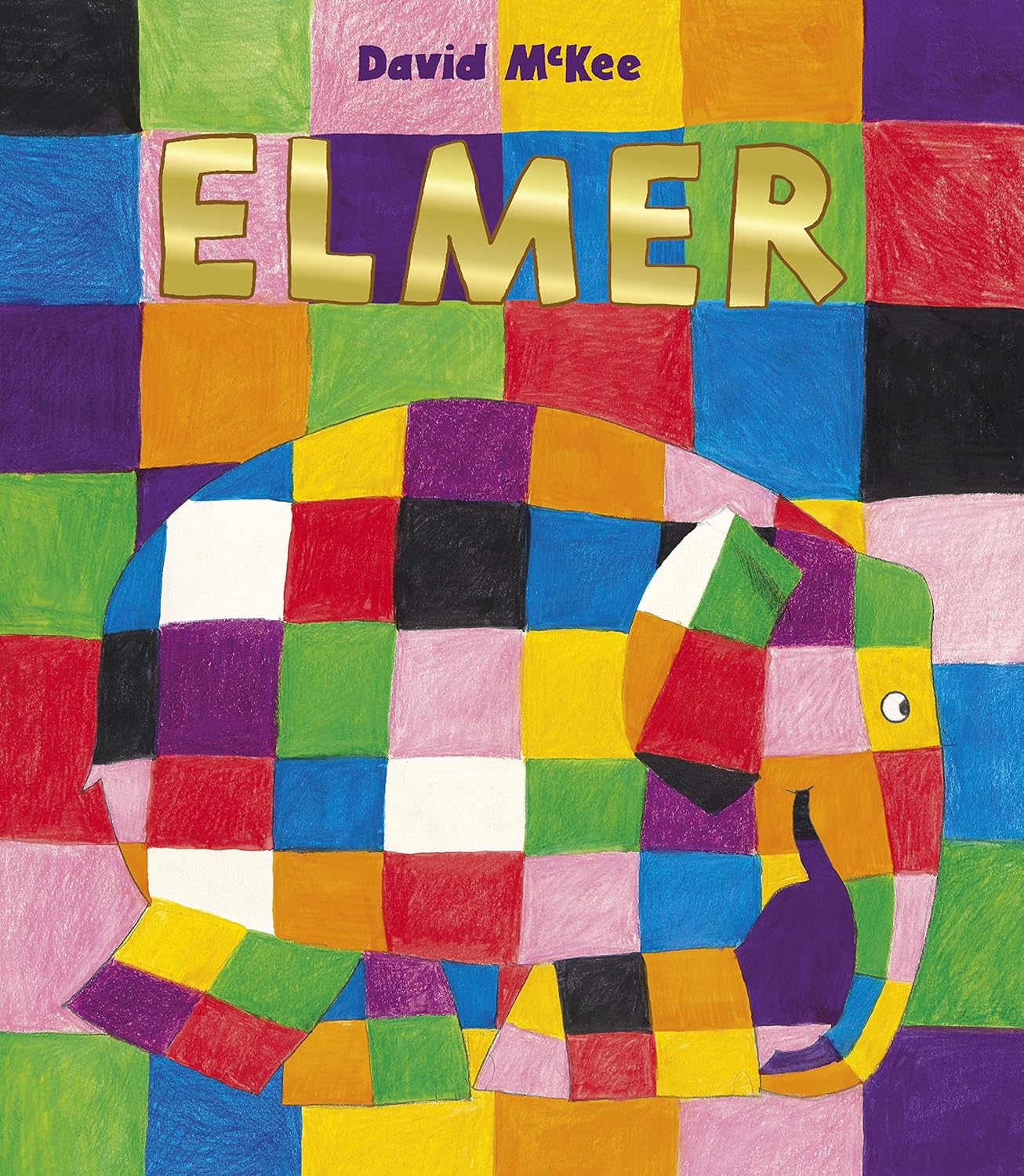
Elmer: 30th Anniversary Edition: 1 (Elmer Picture Books)
FREE Shipping
Elmer: 30th Anniversary Edition: 1 (Elmer Picture Books)
- Brand: Unbranded

Description
With a younger age groups you can use Elmer's multicoloured patchwork body to identify different colours. Aided and abetted by his ventriloquist cousin, Wilbur, Elmer pretends to be blown away on the windiest day. The illustrations, are basic but beautiful and Elma’s patchwork colours were the biggest selling point for my daughter when she was younger than one, but then gradually becoming more interested in the other elephants and animals as she grew up. Elmer is an elephant with yellow, orange, red, pink, purple, blue, green, black and white squares arranged as a patchwork.
The drawings are very cute but the story is meaningless and without respect for children, perhaps offering them stories with a little more depth would not hurt. Elmer the patchwork elephant is delightfully, colourfully different to all the other elephants and he’s usually the one who makes everyone laugh. Registered office address: Unit 34 Vulcan House Business Centre, Vulcan Road, Leicester, Leicestershire, LE5 3EF.First published in 1989, the books are written and illustrated by David McKee, the author of many classic picture books including Not Now Bernard and the winner of a Booktrust Lifetime Achievement Award.
To calculate the overall star rating and percentage breakdown by star, we don’t use a simple average. But peace and quiet is going to have to wait – when Elmer goes outside, he discovers the rain has caused a flood. David McKee is one of the world's best known illustrators of picture books, having created classics such as Not Now, Bernard, Elmer the Patchwork Elephant, and Mr Benn, Gladiator.David McKee was born in Devon and went to Plymouth Art College, where he had a traditional training. All of our books are 100% brand new, unread and purchased directly from the publishers in bulk allowing us to pass the huge savings on to you! These books are the perfect size for little hands to explore themselves making them feel independent whilst improving fine motor skills and encouraging a love of books.
Of course this makes Elmer sad that he is no longer accepted and begins to understand how it feels to be treated like an outsider. It is hard to feel down when you have such a wonderfully brightly coloured, happy elephant to look at. Sign up to hear about the latest books, brilliant competitions, fun activities, brand new resources for teachers and events happening near you as well as the latest World Book Day news and how you can celebrate reading all year round. The perfect introduction to the world of Elmer and his colourful elephant friends for the youngest of children. With its sturdy pages for little fingers, this gift is the perfect introduction to the world of Elmer.The print is framed by hand in Cambridgeshire in the UK, using only European sourced PEFC™ and FSC approved woods. When she leaves, Elmer realises he can't get the tune out of his head either – and as he crosses the jungle he can see the infectious tune spreading to every animal Rose has met! The first book in David McKee’s iconic series about a friendly, fun elephant and his adventures, Elmer is a true ambassador of inclusion, acceptance and celebrating difference. Collect this special 30th birthday edition of David McKee's first book about Elmer, that turned this adorable patchwork elephant into a nursery favourite.
Trading Address (Warehouse) Unit E, Vulcan Business Complex, Vulcan Road, Leicester, Leicestershire, LE5 3EB. The Elmer stories are all about celebrating difference, and their positive message and cheerful illustrations have deservedly made the colourful elephant a modern classic. He has illustrated books by other authors, such as some recent “Paddington Bear” books, and those by his wife, Violet McKee, and his son, Chuck McKee. Elmer es un personaje super divertido y querido por todos que nos enseña que ser diferentes no esta mal y que de hecho, tiene muchas cosas buenas. He must get to Aunt Zelda without any of the other animals seeing him and, as usual, it's up to Elmer to come up with a cunning plan!
This is a beautiful children’s book, that will really brighten up your (and if you have children, also their) day. Featuring a soft chime rattle the Elmer baby soft plush toy is tactile, engaging and encourages inquisitive little minds with his array of bright bold colours.
- Fruugo ID: 258392218-563234582
- EAN: 764486781913
-
Sold by: Fruugo
